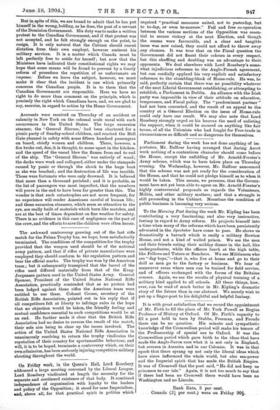To the Morning Post during the week Mr. Kipling has
beeti contributing a very fascinating, and also very instructive, fantasy in regard to Army reform. He projects himself into a time when many of the reforms which have been persistently advocated in the Spectator have come to pass. He shows us dramatically a barrack which is really a military Rowton House, and not a kind of walled prison. We see the men and their friends eating their midday dinner in the hall, like undergraduates, while the officers lunch at the high table, like Fellows and Tutors or Benchers. We see Militiamen whO are "day boys,"—that is, who live at home and go to their drill as men go to the factory or business. We hear of manceuvre areas where men can be trained for field service, and of officers exchanged with the forces of the Britaine oversea. Again, we see the results of physical training of a military kind applied to all schools. All these things, bow. ever, can be read of much better in Mr. ICipling's dramatic story of the future than in our abstract. We merely wish to put up a finger-post to his delightful and helpful fantasy.






































 Previous page
Previous page